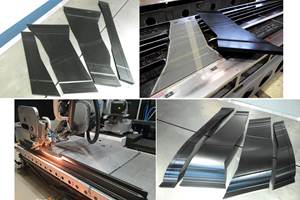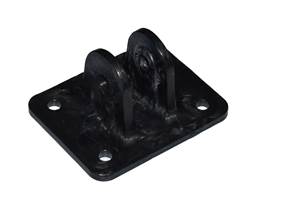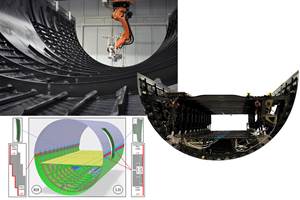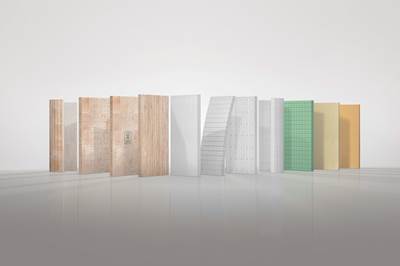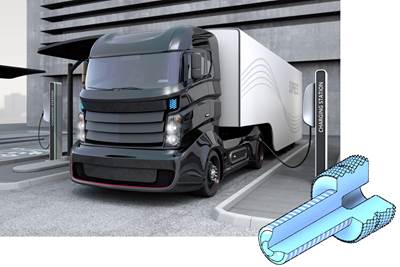Recyclable rigid foam core addresses FST standard needs
CAMX 2024: 3A Composites highlights the fire, smoke and toxicity (FST) properties, sustainability and customization of its Airex rigid foam core product line.
Share

Airex and Baltek core products. Source | 3A Composites
3A Composites (Sins, Switzerland) highlights its recyclable, fire-safe Airex system core product line for structural composite panels.
Airex rigid foam core materials are compliant with ASTM E-84 fire, smoke and toxicity (FST) standards. 3A Composites also says that because core is only one component in a sandwich panel, it works with its supplier partners to help ensure FST standards are met.
Airex system core is also said to be ideal for holding screws and inserts, with a product line ranging from simple high-density core to lower-density core suited for strategically placing customized inserts.
Additional benefits include light weight, sustainable and recyclable core options and low net cost. According to 3A Composites, low-priced core can often result in higher overall costs in the final laminate. In the case of the Airex product line, the company offers low resin absorption cores with recommended laminates and testing to make sure the correct properties and amount of core are used, reducing overall costs.
The company’s specialty is determining the correct balance and mix between high density cores and the high R values of lower density cores. 3A Composites works with customers to ensure the target properties are achieved. Its state-of-the-art R&D lab is available to test final laminates to make sure the core is meeting physical property requirements.
In addition to Airex foam, 3A Composites also offers a selection of other products such as Soric nonwovens and Baltek balsa core.
Related Content
-
3D-printed CFRP tools for serial production of composite landing flaps
GKN Aerospace Munich and CEAD develop printed tooling with short and continuous fiber that reduces cost and increases sustainability for composites production.
-
Plant tour: Airbus, Illescas, Spain
Airbus’ Illescas facility, featuring highly automated composites processes for the A350 lower wing cover and one-piece Section 19 fuselage barrels, works toward production ramp-ups and next-generation aircraft.
-
Hybrid process marries continuous, discontinuous composites design
9T Labs and Purdue applied Additive Fusion Technology to engineer a performance- and cost-competitive aircraft bin pin bracket made from compression-molded continuous and discontinuous CFRTP.
Related Content
3D-printed CFRP tools for serial production of composite landing flaps
GKN Aerospace Munich and CEAD develop printed tooling with short and continuous fiber that reduces cost and increases sustainability for composites production.
Read MorePlant tour: Airbus, Illescas, Spain
Airbus’ Illescas facility, featuring highly automated composites processes for the A350 lower wing cover and one-piece Section 19 fuselage barrels, works toward production ramp-ups and next-generation aircraft.
Read MoreHybrid process marries continuous, discontinuous composites design
9T Labs and Purdue applied Additive Fusion Technology to engineer a performance- and cost-competitive aircraft bin pin bracket made from compression-molded continuous and discontinuous CFRTP.
Read MoreManufacturing the MFFD thermoplastic composite fuselage
Demonstrator’s upper, lower shells and assembly prove materials and new processes for lighter, cheaper and more sustainable high-rate future aircraft.
Read MoreRead Next
Composites industry experts collaborate to address ISO 12215-5:2019 standard challenges
3A Composites Core Materials, STRUCTeam and Beneteau are working to rectify the shortcomings of core requirements of small marine craft in the 2019 framework, while exploring optimal design approaches with foam and balsa core materials.
Read MoreCreating a composite battery insert-stud solution for EV trucks
Bossard worked with an OEM and Tier supplier team to meet tight electrical insulation and packaging tolerances while reducing tooling, molding and assembly costs.
Read MoreAssembling the Multifunctional Fuselage Demonstrator: The final welds
Building the all-thermoplastic composite fuselage demonstrator comes to an end with continuous ultrasonic welding of the RH longitudinal fuselage joint and resistance welding for coupling of the fuselage frames across the upper and lower halves.
Read More.jpg;width=70;height=70;mode=crop)
